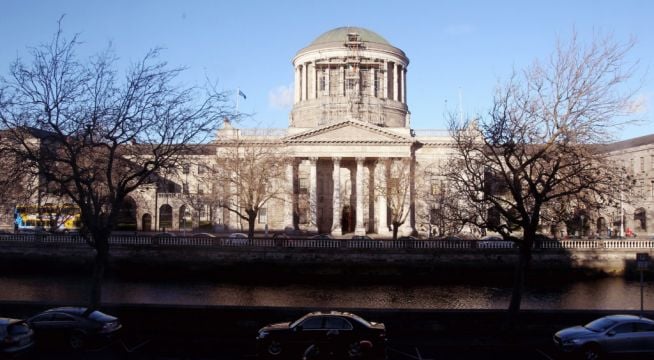A High Court judge has urged siblings involved in a legal battle over their late parents’ “relatively modest” estate to seek a potential compromise.
In a judgement, Mr Justice Mark Sanfey said it seems a “great pity” that there has been such “dissension and strife” among five of the children of the late Daniel and Frances Kinsella.
In her High Court application, Jean Connors, a practising solicitor with an address at Main Street, Bray, Co Wicklow, failed to secure an injunction against her brother Daniel Kinsella to prevent him from carrying out demolition and construction works on the former home of their parents pending the full outcome of the trial, the judge said.
The judge noted that three other siblings – Sandra McGrath, Alan Kinsella and David Kinsella – signed a letter saying their brother owns the house “fair and square”.
Ms Connors claims Daniel Kinsella is carrying out works in excess of what was granted under planning permission.
She also alleges he continued works after an interim injunction was made in October 2019 preventing him from doing so and ordering him to reinstate part of the property and remove machinery, the judge said.
Mr Kinsella claims that any work carried out since the order was “necessitated by the order itself”. Mr Justice Sanfey discharged these previous orders.
Registered owner
Mr Kinsella became the registered owner of the former council house on Casement Park, Bray, Co Wicklow, when his widowed mother transferred it to him in August 2013 while witnessed by a solicitor, the judge noted. The siblings’ mother died some six months later without leaving a will.
In her proceedings, Ms Connors seeks to assert a property right in claiming she has a grant of letters of “administration intestate”, bestowing on her the role of administrator of the deceased’s estate.
She alleges that her mother had transferred ownership of the property due to the “undue influence and/or duress” of Daniel Kinsella junior. All allegations are “vehemently” denied and rejected by Mr Kinsella, the judge noted.
Her proceedings are also taken against two solicitors who represented Daniel Kinsella at one point.
Ms Connors also alleges that her father had a “draft will” stating the property was to be placed on the market, with the proceeds divided among his six children, the judge said. However, he noted that an alleged copy included in her affidavit was poorly photocopied, “largely illegible” and apparently handwritten on a scrap of paper.
The judge noted a written agreement from 1996 in which Daniel Kinsella said he was buying the house on behalf of his parents as part of a council tenant scheme purchase programme.
Open market value
In the agreement signed by both parents, Mr Kinsella wrote that he was buying the property for himself, but in his parents’ name, “who have lifetime tenancy”.
The council had offered a £23,600 price in 1995 as part of the scheme, which was significantly below the property’s open market value, the judge said. Ms Connors does not dispute that her brother provided the money for purchasing the property, he noted.

If Ms Connors is to be successful in her proceedings, she will acquire a proprietary right that would require her to distribute the assets of the estate, said the judge.
Mr Justice Sanfey said it is not yet clear which party would be successful in the proceedings, which are “complex, extremely costly and will, no doubt, if pursued to the end, take a serious emotional toll on all involved in respect of what is a relatively modest estate”.
He urged the parties “even at this advanced stage” to seek a compromise, whether mediated or otherwise.
In refusing Ms Connor’s application, Mr Justice Sanfey said he was satisfied she had established a fair issue to be tried. However, he said it was not apparent to him that she had a strong case likely to succeed at trial such that her brother should be the subject of mandatory reliefs in the interim.







